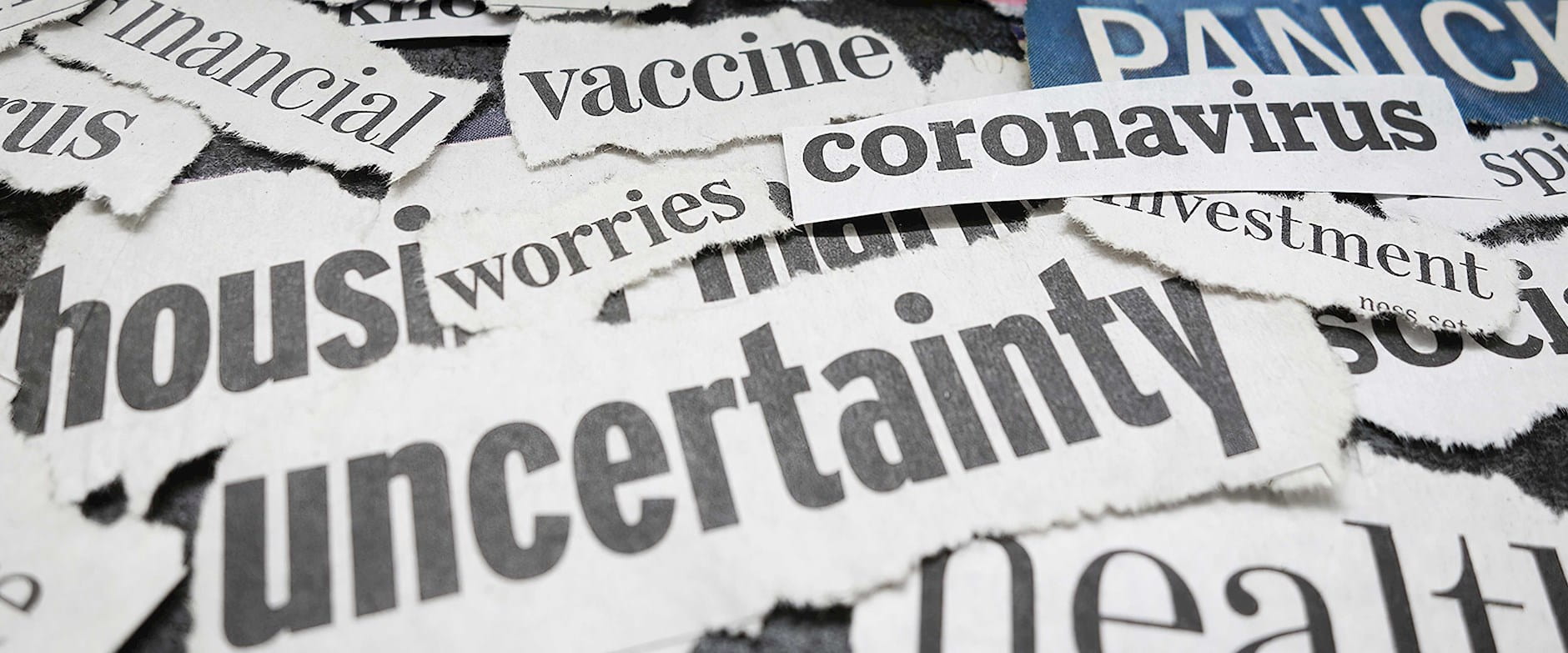What I think really characterizes this crisis is uncertainty. There’s just a lot of information that we don’t know. We’re not sure what the case fatality rate is for this virus. If you look at different countries, there are very different numbers that have to do with differences in how countries record deaths, testing, and so on and so forth. And beyond not even knowing the true damage that this virus will cause from a health perspective in the short term, we don’t know very much about the medium and the long term.
It’s possible that treatments will be developed, like vaccines. I’ve read a little bit about some drugs like remdesivir and hydroxychloroquine, which there have been some studies indicating that there is some effect in treatment, so perhaps this will get better sooner rather than later. On the other hand, perhaps the virus will mutate and become even worse than it is. And perhaps there will be very long-lasting effects.
I’m not in a position to predict what will happen with this virus. I’m not an expert in medicine; my expertise is in economics and finance, so it’s really hard to predict what the damage will be in the short and medium term.
What really characterizes this crisis is tremendous uncertainty, and there’s been a lot of work by one of my advisors, Nick Bloom, and my colleague Steve Davis showing that uncertainty is very bad for the economy and it can delay investment. So just that uncertainty in the short term can lead to very large effects.
One factor that has been missing is thinking in a very formal economic framework about how the government should react in a situation with a great deal of uncertainty. There’s been a lot of work by my colleague Lars Peter Hansen and others about how policy should be made in cases where there’s a lot of uncertainty about future damages, called “robust control.”
An example of the application of this is in climate change. We know that temperatures are rising. We know that this is caused by human activity. But there’s a lot of model uncertainty. We don’t know, one, by how much temperatures will rise, and two, what the impact on humans and the economy will be.
And this is a very similar context to that in a case where we have a lot of uncertainty, and to summarize the findings of this literature, which is very formal and mathematical, one of the big findings is that in cases of uncertainty, policy makers should adopt a very cautious approach and try to minimize the maximum damage that can be done.
So I think the recommendation for policy makers in cases where there’s a lot of uncertainty is that we should be very cautious. And I think one thing that we’ve seen in the media is the opposite conclusion that economic theory would tell us. A lot of people have been saying, “Oh, we don’t know how bad this virus is,” which is true. “Therefore, we should do nothing or proceed as normal.”
No, that’s not what theory would tell us to do if we don’t know what’s going to happen. If we have a lot of uncertainty in a situation, we should be more cautious, not less cautious.
The basic guiding principle should be to avoid very severe damage—for example, like a large portion of the population dying if it turns out that this virus has a very high fatality rate or that there’s a significant potential for it to mutate and turn into a more virulent and deadly form.
